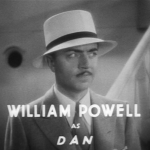 |
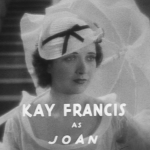 |
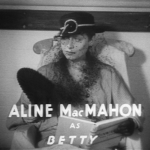 |
| Dan William Powell |
Joan Kay Francis |
Betty Aline MacMahon |
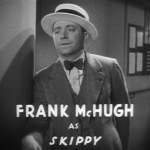 |
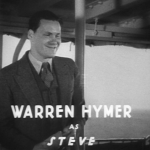 |
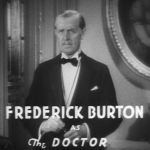 |
| Skippy Frank McHugh |
Steve Burke Warren Hymer |
The Doctor Frederick Burton |
| Released by Warner Bros. | Directed by Tay Garnett Run time: 67 minutes |
||
Proof That It’s a Pre-Code Film
- A woman sleeps with the guy to steal the bullets out of his gun.
One Way Passage: No Fare
“Remember our first?”
“We thought it was our last. You never can tell.”
Let me say this up front: there are lots of people in the world. There are people I know– classic movie people– who can’t stand the Marx Brothers. Other people will dismiss Kay Francis by mocking her slight lisp, becase I guess that’s the easiest way to immediately identify yourself as a jerk. There’s probably some monster out there who prefers Chaplin to Keaton. But what I’m trying to say is that it takes all types of people to make the world go around, and I try not to belittle any of them for their tastes– but, man, if you don’t dig One Way Passage, what are you even doing here?
One of the best filmed love stories of all-time, the sublime One Way Passage also manages to be surprisingly atypical. There’s no romantic rivals, no heavy baggage, save for a pair of inescapable fates for the lovers. Dan (Powell) killed someone– a bad someone, naturally– and was finally caught in Hong Kong by the bullheaded and persistent Burke (Hymer). Burke’s taking Dan back to San Francisco, and the gallows, by way of a 30-day ocean liner journey.
On the same cruise is beautiful Joan (Francis), struck with one of those fatal diseases that can’t stand too many shocks but only outwardly makes your hair a bit more wispy. She and Dan connect instantly, and wistful glances soon turn into intimate embraces. One Honolulu stopover– Dan’s last chance to escape– is instead spent intimately sharing cigarettes as the sun slowly sinks beneath the horizon. The camera follows their cigarettes as they fall into the sand, connected to one another as the camera fades out.
The voyage is not without other interest though. Much of the film’s comic relief comes from Skippy (McHugh), a drunkard with a nihilist streak who’s wanted in every country he’s visited, though certainly not desired. He recognizes on board the Countess Barilhaus, AKA Barrelhouse Betty (MacMahon), a con artist currently working her way through a gullible English nobleman. Dan had done something nice for Betty a while ago, and she seeks to pay him back by seducing Burke and giving Dan the leeway to escape– if only Dan can bring himself to.
Despite running barely more than an hour, One Way Passage breathes with life. Let’s go to the opening, set in a dive bar in Hong Kong. Besides seeing how the piano player keeps a lit cigarete pinched between a few keys so that he can take a drag whenever possible, we’re also treated to three rotund singers going after a sweet tune. They’re thrown a few coins, with one landing in a nearby spittoon. And they try to keep singing, but they keep looking at that spittoon– dammit, they want that coin! Just to drive home what kind of crummy bar it is, a woman approaches one of the singers and whispers her a question. “First door to your left, dearie,” the singer tersely replies.
This is also seen in the democracy of characters. Even hard nosed, slightly dim Burke is shown to have shades of a real heart underneath. This connects with Betty on a level; she’s spent her whole life being who she’s not and finally sees a cop struggling to hide his goodness just as she does day in and day out. But my favorite character remains Skippy– more on that below.
The central love affair is bittersweet and remarkably honest despite being built on a pair of careful omissions by each lover. The affair never seems overtly sexual, which is remarkable for the usually frank pre-Code era, but neither does it curdle towards the empty-headed clawing that characterized so many later-30s dramas, either. While we’re presented a number of longing looks, we don’t hear many of their flowery speeches, nor do we linger incessantly on their intimacy. What we see are the actions– the moments that count. It becomes a weird film of parenthesis, but that allows it to flower in our own imaginations.
Who are Dan and Joan? Embodiments of desire. Of the futility of life and living. We’re all going to die, but, perhaps, if we’re lucky, something stronger lives on.
Spoilers.
I know, it’s probably weird to have spoilers for a film whose ending is written in the stars. But One Way Passage‘s ending is perfect. The two lovers, having both realized the truth of one another and separated to go on to the short ending of their journeys, meet as spirits in a bar, shattering the glasses like they’d done so many times as when they’d been alive. Each time they do it throughout the film, the breaking of the glasses is an ending– they will never hold a drink again– and the crossing of the stems a promise between the two. Even if the glasses are temporary, what remains stays together.
At that final rendezvous in Agua Caliente, which is presented initially in one long shot, we see a somber Skippy at the bar, alone. It’s weird to say, but this is my favorite moment in the film. Skippy throughout has had many of the earmarks of the typical comedic drunk of the early 30s, often doing wacky things like getting into a fight with his own reflection or skipping out on his tab whenever possible. But there’s a real current of anger and frustration that runs beneath all of that– he’s deeply cynical, a petty thief simply because he likes to pass on small cruelties to the world for his own amusement. Seeing him at the bar the end, quiet, almost mournful, connects his story with the other two love affairs that his absence could not have.
While Joan and Dan have something beyond, he is alone, in a bar. Where, since he had no idea about the two’s doomed romantic plans, there’s no reason for Skippy to have been there. But there has to be a reason for him to be drawn there, and even though he doesn’t hear the glasses shatter, maybe it’s an affirmation of sorts; for all the emptiness he sees in the world, there’s still goodness around him. It will haunt him.
End spoilers.
William Powell and Kay Francis were rarely better than they are here. Powell’s, whose character throughout is often plotting how to murder or at least maim a police officer, is still urbane with a center of sweetness and honesty. Francis has the far more thankless part– no chance trying to murder that unnamed disease– but she handles it with the hush and sublime sexiness that she brought to other gems like Trouble in Paradise or Mandalay. Frank McHugh and Aline MacMahon are great– they also play off each other incredibly well– and Warren Hymer does a wonderful job layering on both the thickheadedness and gentleness underneath his bull exterior.
One Way Passage is a tragedy in the classic mold– inescapable, but right. It’s one of the classiest, most uplifting films to come out of the early talkies, and, to me, personally, simply one of the great pleasures of life.
Gallery
Click to enlarge. All of my images are taken by me– please feel free to reuse with credit!
Trivia & Links
- Remade as ‘Til We Meet Again (1940) with stars George Brent and Merle Oberon. It’s alright– it even retains Frank McHugh!– but it’s missing something essential that makes the original so magnetic.
- The sixth and final team-up of Kay Francis and William Powell. They’d also played opposite each other in Behind the Makeup, For the Defense, Street of Chance, Ladies’ Man, and Jewel Robbery. They also both appeared in Paramount on Parade, though not together.
- Acidemic really nails this one on the head perfectly:
Romantic comedies nowadays are full of children in grown up bodies, trying to make each other over into their parents before love wears off and they once again grow lost in unconscious consumerism and self-righteous denial. This film by contrast, is laden with grown-ups, and not a drop of stuffy morality or mush taints their beautiful inherent decency as they walk to their deaths like it’s just another ocean voyage. One of the best recovered jewels in the TCM canon, it’s a testament to humanity’s lack of progress in the past 70 or so years that characters this warm, dashing, cool, romantic, witty, sweet and clever– “whole” people full of confidence, bravery and emotional gravitas–are so rare in movies.
- William Everson’s film notes from November 1964 muse on just how much of the movie draws from Francis and Powell’s chemistry:
Without downgrading Tay Garnett, one is inclined to wonder how much finer a film it might have been with, say, Frank Borzage directing? For it is the two leads who really make this film the success it is: William Powell, polished, underplaying superbly, and Kay Francis, making a soap opera role seem real and almost honest. […] Of course, the last scene – in which neither of these two players is seen – is still one of the great endings of any filmic love story, but again it is a writing rather than a directorial credit. However, perhaps it doesn’t really matter. What does matter is that the film still holds up, and what a pleasure it is to see again an honestly sentimental, unpadded, genuinely moving love story of the old school.
- Kristina at Speakeasy muses on the symbolism of the breaking glasses:
The ritual where Powell and Francis break their glasses after drinking cocktails is also repeated with more loaded significance each time. First it shows them bonding over their belief in fate and their zest for life, later it engages and infuriates the ship’s bartender (Roscoe Karns, excellent as the witness to all kinds of love and theft) and finally the shattered glasses signify the couple’s fate.
- Cliff at Immortal Ephemera really loves Frank McHugh here and waxes poetically on Warren Hymer:
I’ve already mentioned that McHugh is sterling so let me add that MacMahon is wonderful as well. Warren Hymer, who’s still getting strong parts at this point, is at his best. While he’s pretty much his usual one-note tough guy, there’s more of him in One Way Passage than I’m accustomed to seeing and his shtick really works here. I’m now convinced no one can say sucker quite like Warren Hymer.
- Mordaunt Hall’s contemporary review notes “it has an original idea.” Thanks, Mordaunt.
- Lastly, 11 East 14th Street has a full visual outline of the movie, discussing what works and why.
Awards, Accolades & Availability
More Pre-Code to Explore


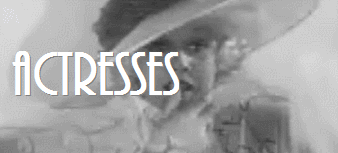
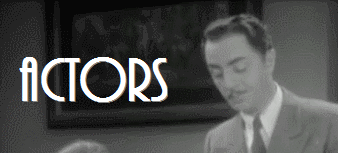
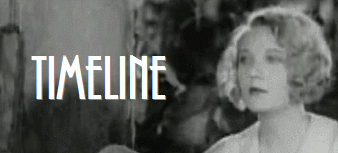
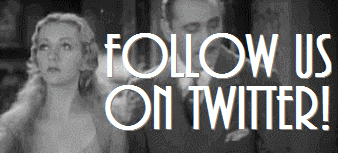

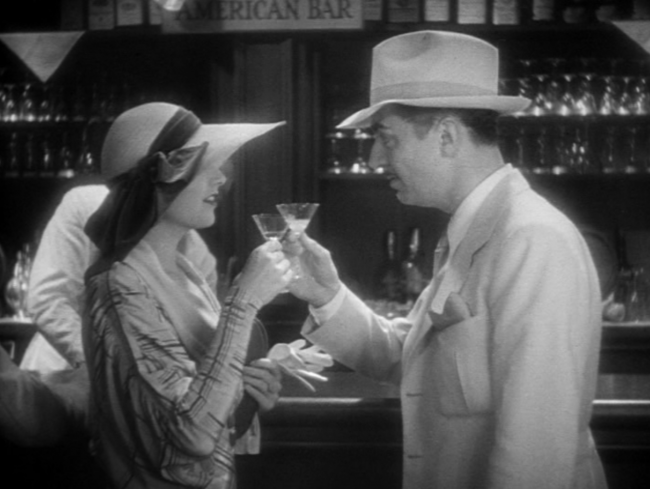
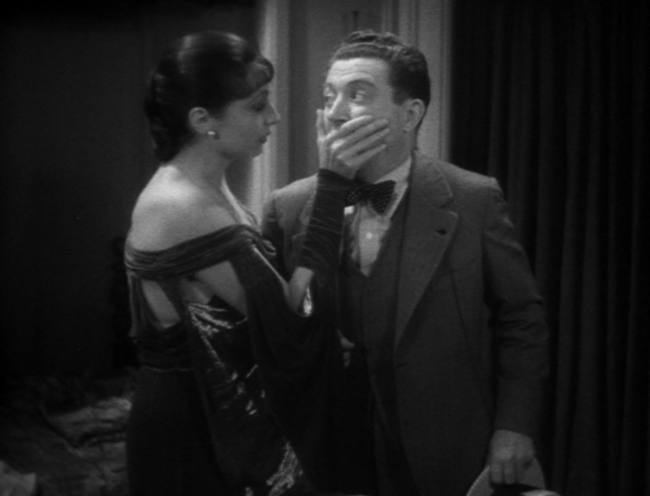
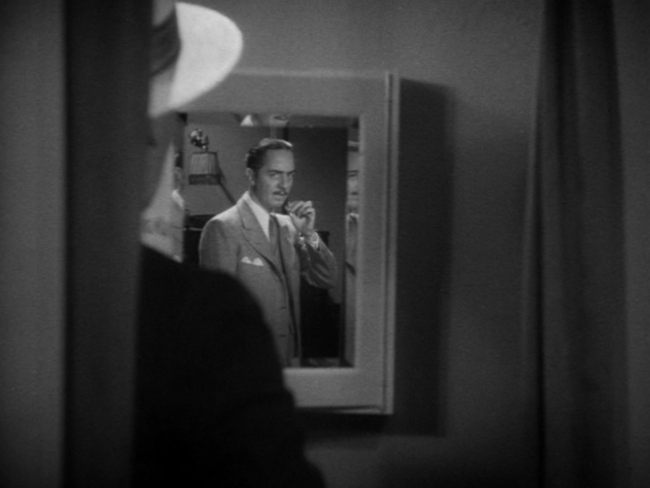
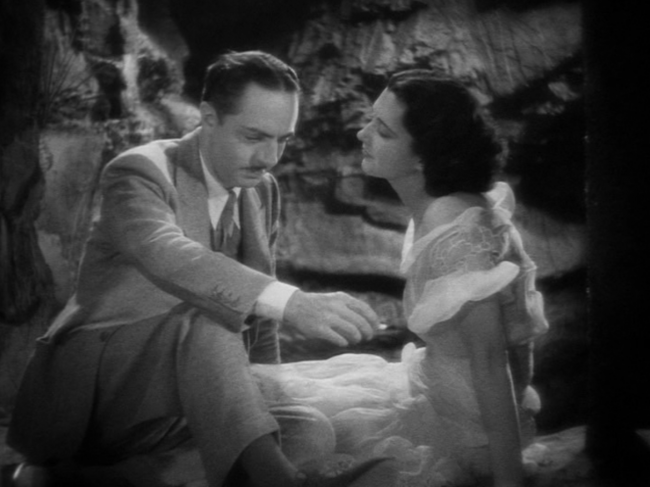
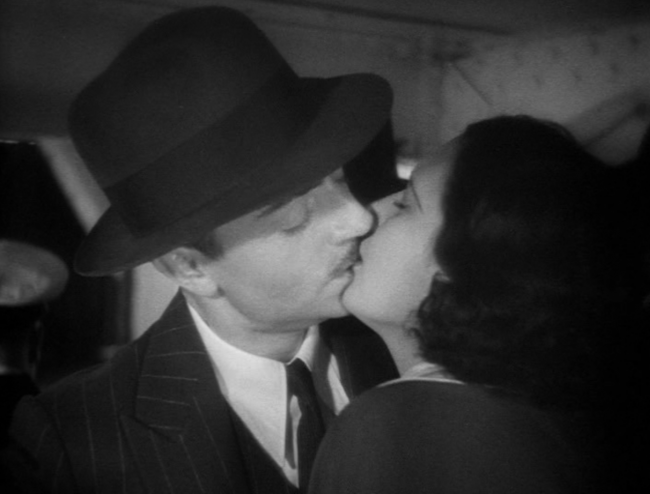
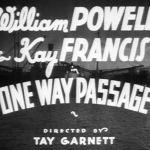
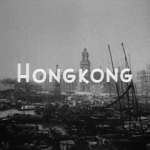

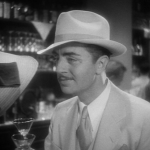
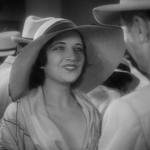
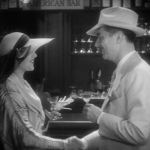
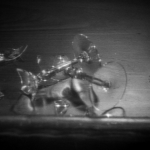
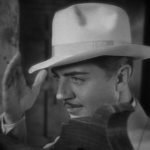
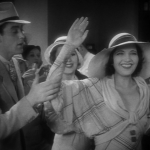
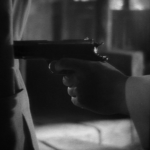
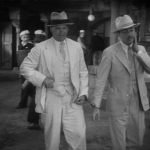
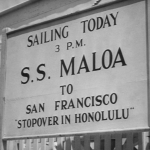
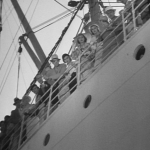
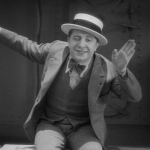

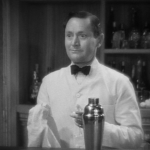
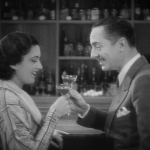
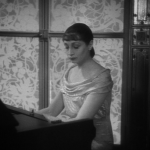
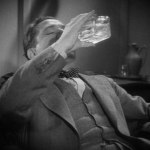
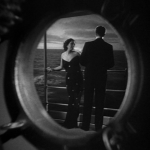
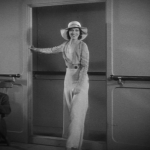
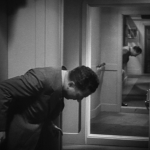
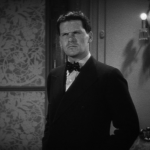


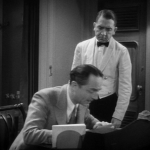
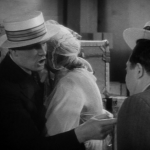
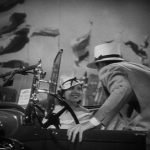
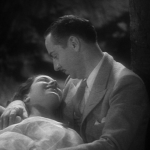
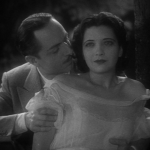


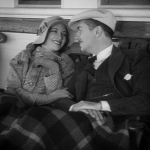
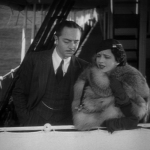
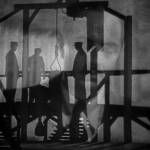
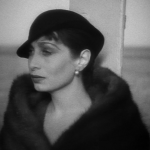
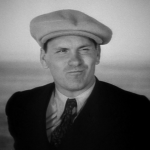
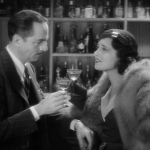
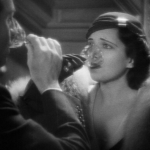
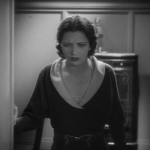
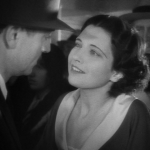

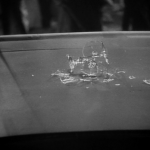
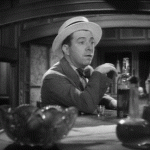
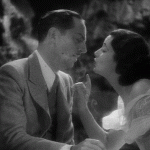
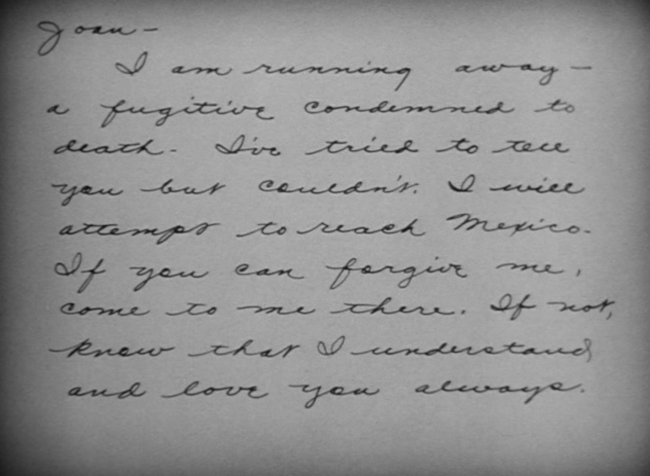



11 Comments
jameswharris · June 17, 2016 at 1:30 am
I love One Way Passage and Jewel Robbery — I need to find the other four pictures Powell and Francis made together. I may have seen them, but I don’t remember.
Camille · June 17, 2016 at 2:22 am
I love this movie too – although my first introduction to it was a Carol Burnett spoof, many years ago. I’ve often wondered why Frank McHugh always seems to be playing characters with names you’d give a dog – Skippy, Droopy, Lucky, Sniffer, Scat, Skeets, Spud.
Jennifer · June 17, 2016 at 3:08 am
Strangely enough I don’t think I’ve ever seen this! Luckily it plays fairly often. Gotta set the DVR!
Terence · June 17, 2016 at 5:19 am
I also love this one. The plot pushes all the tearjerker buttons and yet, the the two leads make it believable.And Frank McHugh is great. I think if Borzage directed it, it would have actually come out too sentimental.
Molly · June 17, 2016 at 5:49 am
Francis and Powell are just perfection together. My romance with pre-Code started with Jewel Robbery. I loved The Thin Man but with JR I knew I was viewing something ‘different’. You’ve captured a couple of gorgeous shots of these two up above.
Muscato · June 17, 2016 at 8:45 am
A lovely musing on a favorite film. I first saw it at the old Biograph in New York, long before the Francis renaissance when it was considered – when it was at all – as a silly tearjerker. Seeing it on the big screen was incredible – the combined star power of Francis and Powell, and the tart elegance of MacMahon (as an elegant tart, now that I think of it) playing off the (as you note, at times oddly poignant) silliness of McHugh. Really a remarkable movie.
Patricia Nolan-Hall (@CaftanWoman) · June 17, 2016 at 9:46 am
I love both the versions, for different reasons, but they both leave me a totally wrung out mess.
cc · June 18, 2016 at 12:58 am
This is a beautiful movie. William Powell and Kay Francis had wonderful chemistry together. I love all their movies and it’s too bad they didn’t make more together. William Powell’s pre-code and silent movies usually show him to be more of charming, yet devilish character. His whole 30+ year career is full of such a beautiful range of different characters. Starting with excellent, but despicable villains to exiting films as a distinguished, aging gracefully gent and just so much wonderfulness in between.
Kelly · July 11, 2016 at 6:07 am
One of Warren Hymer’s best roles. I’m a huge fan of his and I run a Facebook group dedicated to Warren’s life and career. He was severely underrated as an actor because he played goofballs so well and became typecast as such. He started his film career at Fox Studios as a serious heavy but most of his films from 1929-31 at Fox are still considered lost or only exist in silent versions. Excellent review, Danny!!
Marilyn Small · November 26, 2017 at 10:49 am
I’d seen the remake several times, if only because of Frank McHugh ( never a big fan of Oberon or Brent ), but the original is magnificent, seeming fresh even when I knew the outcome.
Great article!
Hoosier X · January 11, 2019 at 1:28 pm
I DVRed it just because I love Kay Francis so much but I fell in love with it because of Frank McHugh’s performance. He’s so great! From Footlight Parade “It can’t be done, Mr. Kent! It can’t be done!” to his horrifying death scene in The Crowd Roars to the unfortunately obscure Three Men on a Horse, Frank McHugh is AWESOME!
Comments are closed.